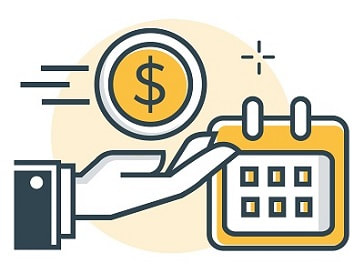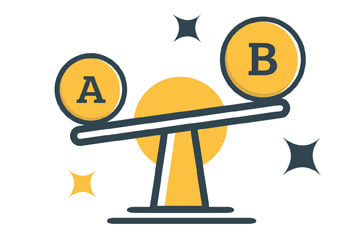Maximising Income in Retirement in New Zealand
Discover how to maximise your retirement income in New Zealand with our comprehensive guide, covering strategies, common income sources, and tips for financial security during your golden years.
Updated 17 April 2023
Summary:
To help you maximise income in your retirement, our guide covers:
Who is this guide for?
This guide is published with the main target audience being Kiwis who’ve retired (older than age 65) that are keen to maximise their income and make their finances last longer. However, the information provided in this guide can apply to all types of Kiwis, including:
More MoneyHub resources on retirement:
- Many Kiwis will be reaching the stage where they've worked hard over the decades and are now ready to relax and enjoy life in retirement. This ideal retirement might involve spending time with family, travelling, volunteering or working on a passion project part-time.
- Retirement is an important stage in life when Kiwis generally aren't working (or working far less) and instead focus on enjoying their golden years. As such, retirement planning is crucial for ensuring financial security and comfort during this stage of life.
- However, with people living longer than ever, there's a serious risk of running out of money in retirement. If your financial situation doesn't allow for a comfortable retirement, your finances must be managed in a way that will continue to work for you. Whether you're receiving New Zealand Superannuation, income from investments or rent from a property, it's essential to have a plan in place to control and maximise your income in retirement to have peace of mind that you won't run out of money in the long run.
- Many individuals now face a 30-year retirement; having enough funds to go the distance and not relying on the NZ Super takes some skill, good planning and arguably luck. This guide is designed to help you navigate retirement with positive cashflows.
To help you maximise income in your retirement, our guide covers:
- Understanding the Two Main Retirement Income and Investing Strategies
- The Most Common Retirement Income Inflows
- Maximising Each Source of Income in Retirement
- Must-Know Facts for Maximising Retirement Income in New Zealand
- Frequently Asked Questions
Who is this guide for?
This guide is published with the main target audience being Kiwis who’ve retired (older than age 65) that are keen to maximise their income and make their finances last longer. However, the information provided in this guide can apply to all types of Kiwis, including:
- Kiwis about to retire (50 - 60 years old) want to check whether their finances will work out in retirement.
- Young Kiwis (30 - 50 years old) that are pursuing FIRE (financial independence, retire early) and are keen on retiring early but want to make sure the numbers work out without New Zealand Superannuation (that only kicks in at age 65).
- Kiwis that have been retired for a while (70 - 80 years old) are considering alternative retirement scenarios (such as downsizing, moving into rest homes or residential care facilities or moving in with their children).
- Children of parents that are retired and want to try and support/recommend tips to their parents.
- Kiwis of any age and curious as to what their future retirement will look like.
More MoneyHub resources on retirement:
Know this first: How does superannuation work in New Zealand?
- The New Zealand Superannuation (NZS) is a government-funded pension scheme that provides a regular income to eligible New Zealand residents aged 65.
- NZS is funded by taxpayers and is paid out to eligible recipients on a fortnightly basis. To be eligible for NZS, individuals must have lived in New Zealand for at least ten years since the age of 20, including five years since the age of 50. Note that this requirement is likely to change in July 2024.
- New Zealand's retirement age when NZS kicks in is 65 years old. However, this age is set to increase to 67 years old by 2040. This increase means that individuals born after June 30, 1973, must wait until they're 67 to receive their New Zealand Superannuation (NZS). The New Zealand Government has announced increasing the retirement age.
Why would I need to maximise my retirement income in New Zealand?
Maximising retirement income is important for ensuring financial security and comfort during retirement. Often, Kiwis end up living far longer than they initially expected to and may not have enough money saved (either through investment accounts or KiwiSaver) to support themselves into old age. Additionally, the cost of living in New Zealand is rising, and many individuals are finding that their NZS payments are not enough to cover their living expenses. Maximising retirement income can also allow Kiwis to enjoy their retirement to the fullest and pursue their interests and hobbies unconstrained without the fear of running out of money at a time when they're most vulnerable.
Understanding the Two Main Retirement Income and Investing Strategies
1. The bucket strategy
- The bucket strategy is a popular retirement planning method that divides retirement savings into different "buckets", each with a specific purpose and time frame for withdrawal. The idea behind the bucket strategy is to ensure that retirees have a steady stream of income during their retirement years while also preserving their savings for the long term. The three main buckets are the short-term (income), medium-term (growth) and long-term (legacy) buckets.
- The short-term (income) bucket is typically made up of safe, defensive, liquid investments such as cash, term deposits, or bonds that can provide a steady stream of income in the short term. The purpose of this bucket is to provide income to cover expenses in the early years of retirement when retirees are more likely to have higher spending needs.
- However, investing in safer, liquid investments like cash, term deposits or bonds (short-term buckets) generally won't provide the same level of return that Kiwi retirees need to maintain and grow their wealth after factoring in inflation. That's where the medium-term bucket comes in. The medium-term (growth) bucket is typically made up of investments such as shares, funds, or real estate that have growth potential but carry more risk. The purpose of this bucket is to provide long-term growth and preservation of savings so that retirees can have a source of income later in their retirement years that stay ahead of inflation.
- The long-term (legacy) bucket is typically made up of assets that aren't needed for income or growth but are intended to be used to pass down to children, family members or charity. The assets in this bucket include a paid-off house, sentimental items or valuable art.
2. The systematic withdrawal strategy
The systematic withdrawal strategy refers to regularly withdrawing a set amount from an investment or savings account over time. Retirees commonly use this withdrawal strategy to provide a consistent source of income during their retirement years while also preserving the retiree's savings for the long term. The amount of money that's withdrawn and the frequency of the withdrawals are determined by each Kiwi retiree's income needs and the size of their investment or savings account.
Two main types of systematic withdrawal plans are fixed amounts and fixed percentages.
Fixed-amount plans are better suited for Kiwis that want stable cash flow that doesn't fluctuate based on what their retirement and investment accounts are doing. However, the downside is that they may be drawing the same amount at the worst possible time (for example, taking the above example, if retirement accounts dropped by 50%, you would still be drawing down $5,000 a month on depressed market prices).
On the other hand, fixed-percentage plans are more dynamic and will ensure your money lasts longer in retirement, but the amount you draw down on will fluctuate heavily. For example, 1% of $1,000,000 is $10,000 per quarter. However, if the value of your investment accounts drops by 20%, 1% of $800,000 is only $8,000 per quarter, meaning you'll draw down less than you normally do for that quarter. Both systematic withdrawal plans have their pros and cons. Kiwis need to consider each one and determine which works best for them.
Two main types of systematic withdrawal plans are fixed amounts and fixed percentages.
- In a fixed-amount plan, Kiwi retirees would withdraw a fixed dollar amount at regular intervals ($5,000 a month, for example), regardless of the performance of the investment or savings account.
- In a fixed-percentage plan, Kiwi retirees would withdraw a fixed percentage of the account balance at regular intervals (1% per quarter, for example).
Fixed-amount plans are better suited for Kiwis that want stable cash flow that doesn't fluctuate based on what their retirement and investment accounts are doing. However, the downside is that they may be drawing the same amount at the worst possible time (for example, taking the above example, if retirement accounts dropped by 50%, you would still be drawing down $5,000 a month on depressed market prices).
On the other hand, fixed-percentage plans are more dynamic and will ensure your money lasts longer in retirement, but the amount you draw down on will fluctuate heavily. For example, 1% of $1,000,000 is $10,000 per quarter. However, if the value of your investment accounts drops by 20%, 1% of $800,000 is only $8,000 per quarter, meaning you'll draw down less than you normally do for that quarter. Both systematic withdrawal plans have their pros and cons. Kiwis need to consider each one and determine which works best for them.
The Most Common Retirement Income Inflows
Reviewing your current (or expected) income sources in retirement is important in ensuring financial security and comfort during your golden years. Key income sources include New Zealand Superannuation (NZS), KiwiSaver, investment accounts, employment earnings, and other income, which we outline below in detail.
1. New Zealand Superannuation
New Zealand Superannuation (NZS) will be a significant portion of the income Kiwi retirees get in retirement. However, the amount you can expect from your NZS will depend on your income and how long you’ve lived in New Zealand. For many Kiwis, NZS is usually enough to pay the basic living costs but not enough to live in luxury. As a result, many Kiwis look to supplement their NZS income through other income sources listed below. The current NZS rates are detailed in our dedicated superannuation guide.
Single? If you're single, it doesn't matter how much income do you have - it won't affect your NZ Super or Veteran's pension payments, unless you get an overseas pension.
In a relationship? It doesn't matter how much income do you and your partner have - it won't affect your NZ Super or Veteran's pension payments, unless either of you get an overseas pension.
Single? If you're single, it doesn't matter how much income do you have - it won't affect your NZ Super or Veteran's pension payments, unless you get an overseas pension.
In a relationship? It doesn't matter how much income do you and your partner have - it won't affect your NZ Super or Veteran's pension payments, unless either of you get an overseas pension.
2. KiwiSaver
KiwiSaver is a voluntary savings scheme that helps New Zealanders save for retirement. Employees must contribute 3% of their earnings if Kiwis opt in. However, contributions can be increased, or employees can opt-out. Employers must also contribute 3% of the employee's salary. Generally, KiwiSaver funds are only accessible once Kiwis turn 65. However, KiwiSaver accounts can be accessed in specific situations, such as:
For more details on the specific instances in which you can withdraw your KiwiSaver early, check out the IRD's official guidance.
While not technically an ongoing form of income, most Kiwis will get a one-off "windfall" of income (tax-free) when they reach age 65 and decide to withdraw their KiwiSaver balances. These KiwiSaver retirement savings can be reinvested in investment accounts (such as shares, bonds or term deposits) or used as a form of cash flow to pay for weekly expenses in retirement. For many Kiwis, KiwiSaver forms a core source of cash to draw down in retirement to pay weekly expenses.
For more details on KiwiSaver, check out our other comprehensive resources:
- Purchasing a first home
- Financial hardship
- Health reasons
- Emigrating away from New Zealand
- Other reasons (such as bankruptcy, tax liability or relationship property)
For more details on the specific instances in which you can withdraw your KiwiSaver early, check out the IRD's official guidance.
While not technically an ongoing form of income, most Kiwis will get a one-off "windfall" of income (tax-free) when they reach age 65 and decide to withdraw their KiwiSaver balances. These KiwiSaver retirement savings can be reinvested in investment accounts (such as shares, bonds or term deposits) or used as a form of cash flow to pay for weekly expenses in retirement. For many Kiwis, KiwiSaver forms a core source of cash to draw down in retirement to pay weekly expenses.
For more details on KiwiSaver, check out our other comprehensive resources:
3. Personal investment accounts
Aside from NZ Super and KiwiSaver, many Kiwis will have investment accounts that they've put to work to generate additional wealth. Investment accounts (such as brokerage accounts, savings accounts and term deposits) can provide additional income in retirement. These accounts can be used to earn interest (from savings accounts or term deposits) or dividends, which can provide a steady income in retirement.
Many Kiwis in retirement have investment accounts, especially if they're used to saving savings when working full-time.
Many Kiwis in retirement have investment accounts, especially if they're used to saving savings when working full-time.
4. Real Estate
One of the main ways Kiwis generate retirement income is by renting out a property. Real estate can provide a steady income in the form of rent, which can be used to supplement retirement income. However, real estate isn't as simple as collecting a New Zealand Super payment or dividend from an investment account. Real estate has risks, challenges and responsibilities, such as finding and screening tenants, collecting rent, and maintaining the property. Also, ongoing costs have to be managed and budgeted for - rates bills, insurance and significant repairs.
5. Employment in retirement (either part-time or full-time)
Some Kiwis in retirement choose to continue working even after they've reached the typical retirement age of 65. Working in retirement can be a great way to continue learning and stay connected to the wider community while providing additional retirement income. In addition, a significant number of Kiwis choose to continue working (at least part-time) during retirement to supplement their income.
Note that it's possible to receive NZ Super while working or receiving other income. However, working alongside receiving NZS payments may impact the amount of tax you'll need to pay on your combined income in retirement. So, consider the tax impact of continuing to work while receiving NZS payments or government benefits. Work and income's official guidance provides more details on working while receiving NZS payments.
Note that it's possible to receive NZ Super while working or receiving other income. However, working alongside receiving NZS payments may impact the amount of tax you'll need to pay on your combined income in retirement. So, consider the tax impact of continuing to work while receiving NZS payments or government benefits. Work and income's official guidance provides more details on working while receiving NZS payments.
6. Other income
Any other sources, such as income from a business or side hustle, can also provide additional income in retirement. As stated above, you'll still need to pay tax on this additional income in retirement, so ensure you fully track and disclose this income at the end of each financial tax year.
Maximising Each Source of Income in Retirement
While there’s no one-size-fits-all approach when it comes to maximising income in retirement, here are a few strategies that can be implemented to maximise each source of income listed above:
1. Consider delaying retirement and continue working in your primary job
While reaching 65 can feel like a milestone and a natural time to leave the workforce, Kiwis don't always need to do this. As stated above, one strategy to stretch out and maximise income is to delay your retirement by continuing to work after 65. This delay in retirement can provide additional income and the opportunity to stay active and engaged.
2. Pick up an additional job (either part-time or full-time)
Another strategy is to pick up another job, whether it's part-time or freelance work. This job can provide additional income and an opportunity to pursue your interests and hobbies that you might not have been able to pursue when working full-time. For this role, try to choose a job compatible with your health and lifestyle that you're passionate about.
3. Increase your allocation to and optimise investment accounts
If you want to maximise your retirement income, increasing your weighting or allocation to investment accounts can yield additional income in retirement. However, whether Kiwis choose to invest in higher paying dividend shares, invest in higher risk (and higher reward) asset classes or choose financial products that yield more interest income, often retirees can be overly defensive and hold large amounts of cash that ultimately get whittled away by inflation.
However, consider the risk and return of different investment options concerning your risk appetite and investment objectives. In addition, because Kiwis in retirement generally aren't working full-time and aren't thinking of working for decades, they may be less resilient when taking losses in their investment accounts. Therefore, it's important to position your assets and investment in a way that makes sense for you as the retiree.
However, consider the risk and return of different investment options concerning your risk appetite and investment objectives. In addition, because Kiwis in retirement generally aren't working full-time and aren't thinking of working for decades, they may be less resilient when taking losses in their investment accounts. Therefore, it's important to position your assets and investment in a way that makes sense for you as the retiree.
4. Increase rent rates on rental properties each year (if you own property)
For those that own rental properties and generate income from them, one strategy to maximise your income in retirement is to ensure that your properties are well-maintained and that the rent is always set at a competitive rate. This scenario can mean that you include a rent review clause in the terms and conditions of the tenancy agreement to review the rent rate more frequently or find higher quality, longer-term tenants that increase the likelihood of receiving a steady stream of rental income over time. Overall, these tactics will likely result in higher rents and lower vacancy rates on rental properties, increasing your income in retirement.
5. Take full advantage of the available government benefits
A final strategy to maximise your income in retirement is to make the most of government benefits and subsidies available to you. A few of the additional government benefits that retirees may be entitled to include:
Important: Most of the above benefits don't specifically apply to retirees and are available to all Kiwis that fit the relevant criteria. However, this doesn't prevent retirees from applying for and receiving these benefits. Additionally, some of the above are means-tested benefits provided to those in financial hardship and unable to meet the costs of accommodation or basic living expenses. Therefore, these benefits may not apply to all retirees. However, it's important not to leave "money on the table", so ensure you check which benefits you might be eligible for. Work and income break down the full government benefits and payments list for Kiwis.
- Accommodation Supplement
- Disability Allowance
- Special Needs Grant
- Temporary Additional Support
- Advance Payment of Benefit
- Residential Care Subsidy
Important: Most of the above benefits don't specifically apply to retirees and are available to all Kiwis that fit the relevant criteria. However, this doesn't prevent retirees from applying for and receiving these benefits. Additionally, some of the above are means-tested benefits provided to those in financial hardship and unable to meet the costs of accommodation or basic living expenses. Therefore, these benefits may not apply to all retirees. However, it's important not to leave "money on the table", so ensure you check which benefits you might be eligible for. Work and income break down the full government benefits and payments list for Kiwis.
6. Optimise your withdrawal strategy
While not technically a way to increase your income, optimising your withdrawal strategy will make your income go further, effectively increasing the length of your retirement as an alternative to increasing your retirement income. Optimising your withdrawal strategy in retirement is essential for Kiwis looking to ensure their income lasts as long as possible. There are several key elements to consider when building and optimising a withdrawal strategy:
7. Assess your spending needs
The first step in optimising your withdrawal strategy is to assess your spending needs. A clear understanding of your spending needs can ensure your withdrawal strategy is sustainable and meets your needs.
Assessing your spending can include separating your expenses into either:
Once you’ve identified whether your costs are fixed or variable, you can then categorise each cost into either:
Once your spending needs have been assessed, you can look for areas to consider cutting down on. Ideally, this reduction in spending would focus on cutting back on non-essential expenses, such as dining out and finding ways to save on fixed expenses (such as negotiating with utility providers or finding cheaper alternatives). Cutting discretionary spending is one of the best ways to maximise your withdrawal strategy without compromising too much on your quality of life in retirement.
For more information on saving and cutting down on spending, check out our guides:
Spending:
Insurance:
Power:
Broadband:
Assessing your spending can include separating your expenses into either:
- Fixed expenses (e.g. expenses that don’t change month to month, such as internet and utilities)
- Variable expenses (e.g. travel, activities or entertainment).
Once you’ve identified whether your costs are fixed or variable, you can then categorise each cost into either:
- Essential spending (e.g. things you need to spend on, like food, rent and transportation)
- Discretionary spending (e.g. things you don’t need but want to spend on, like eating out at restaurants or buying the latest gadgets)
Once your spending needs have been assessed, you can look for areas to consider cutting down on. Ideally, this reduction in spending would focus on cutting back on non-essential expenses, such as dining out and finding ways to save on fixed expenses (such as negotiating with utility providers or finding cheaper alternatives). Cutting discretionary spending is one of the best ways to maximise your withdrawal strategy without compromising too much on your quality of life in retirement.
For more information on saving and cutting down on spending, check out our guides:
Spending:
- 20 Easy Ways to Save LOTS on Household Bills
- How to Save Money on Food
- How to Protect Your Finances from Inflation
Insurance:
- Insurance in New Zealand
- Compare Comprehensive Car Insurance & Find the Best Value Policy
- Compare Contents Insurance.
Power:
Broadband:
8. Withdraw only what you need
Another key element of optimising your withdrawal strategy is withdrawing only what you need from your investment accounts and savings and not keeping too much cash in the bank. So often, many Kiwi retirees will be overly prudent or defensive and keep significant amounts of cash in their bank account that doesn't generate many returns. Instead, any additional cash you have can be put to work and reinvested to continue growing your wealth in retirement, providing additional income in the future.
A few ways to adjust your withdrawal amount include:
A few ways to adjust your withdrawal amount include:
- Avoid having too much cash in your bank account that doesn't earn any investment return - you may want to consider call accounts so you can earn some interest before you spend the money.
- Make more frequent, regular withdrawals from your investment accounts rather than large lump sums (especially when the markets are volatile).
- Only withdraw the minimum amount from your savings accounts to meet necessary expenses.
9. Stagger your cash flow
Another strategy to consider is staggering your cash flow around high and low spending periods. For example, during high-spending periods (such as travel or holidays), you can withdraw more from your investment or savings accounts in advance because you know you're likely to spend more in the coming months.
During low spending periods, you can withdraw less, allowing your investments and savings accounts to grow and minimise the amount of excess cash sitting in the bank, earning very little (unless it's in a call account). This approach can help to balance your income needs with your investment goals and can help to ensure that your withdrawal strategy is sustainable over time.
During low spending periods, you can withdraw less, allowing your investments and savings accounts to grow and minimise the amount of excess cash sitting in the bank, earning very little (unless it's in a call account). This approach can help to balance your income needs with your investment goals and can help to ensure that your withdrawal strategy is sustainable over time.
Must-Know Facts for Maximising Retirement Income in New Zealand
1. You must still pay taxes on all your income sources, even in retirement
Just because you’re retired doesn’t mean you earn tax-free. While your KiwiSaver balance that you can withdraw after age 65 is tax-free, you’ve already paid tax when you initially put money into the KiwiSaver account and on the investment earnings throughout the life of the KiwiSaver. You’ll need to pay income tax on all income sources in retirement, including:
2. Tax-efficient investments maximise income in retirement
Being as tax efficient as possible with your investments is one of the best ways to maximise income in retirement. Tax efficiency is important because it can help Kiwi retirees to keep more of the money they earn, which can be used to supplement their existing assets and preserve their savings for the long term.
One example could be investing in shares listed on the Australian Stock Exchange (ASX) or New Zealand Stock Exchange (NZX), as many of the shares listed on these exchanges are exempt from FIF taxes. As a result, choosing to invest in these shares in retirement can be one way to invest in a more tax-efficient manner.
One example could be investing in shares listed on the Australian Stock Exchange (ASX) or New Zealand Stock Exchange (NZX), as many of the shares listed on these exchanges are exempt from FIF taxes. As a result, choosing to invest in these shares in retirement can be one way to invest in a more tax-efficient manner.
3. Tax paid while earning income in retirement can vary wildly
The tax you pay while earning an income in retirement can vary wildly depending on many different factors, including:
- Marital status.
- Whether your spouse is retired or still working (which impacts whether your income is treated as single or combined).
- Whether you’re working part-time or full-time.
- What other sources of income do you have (either passively through dividends and interest or actively through side hustles)?
4. Prioritising stability over absolute returns is key when in retirement
Many Kiwis in retirement might be keen to try and get aggressive with their investment strategy to try and grow their wealth and make their money go longer. However, this can be a dangerous proposition. Because Kiwis in retirement are far past their peak earnings potential and their ability to continue working for decades is diminished, it can be more difficult for Kiwis to recover from steep market declines (given the naturally shortened timeframes of investing at age 65 versus age 20).
Given this constraint, it's recommended to prioritise lower risk and higher stability when investing instead of getting the maximum return possible from your retirement investments.
Given this constraint, it's recommended to prioritise lower risk and higher stability when investing instead of getting the maximum return possible from your retirement investments.
5. Financial Independence, Retire Early (FIRE) is increasingly popular
For those that aren’t in retirement age yet but intend to retire early and want to plan out what their retirement could look like, check out a few other FIRE resources that could be useful below:
- How to Retire Early in New Zealand.
- FIRE (Financial Independence, Retire Early) Movement - An Introduction for New Zealanders.
- Achieving Financial Independence, Faster.
- Getting FIRE’d in New Zealand - The Seven Must-Know Steps.
- The Four Percent Rule for FIRE - The Definitive New Zealand Guide to a Financially Secure Retirement.
Frequently Asked Questions
Can I continue to work after I reach retirement age?
Yes, you can continue to work after the retirement age of 65. There's no legal limit on how much you can work or earn after this age.
How much can I expect to receive from my NZ Super?
The amount you can expect to receive from your NZS will depend on your income and how long you have lived in New Zealand. The rates are adjusted each year for inflation and general cost of living changes. You can find more detailed information on current NZ Super pension payment rates in our dedicated guide and from the Work and Income website.
Can I still contribute to my KiwiSaver after reaching retirement age?
Yes, you can continue contributing to your KiwiSaver after retirement. However, you won't be eligible for the government tax credit. In addition, your employer won't be obligated to match your contributions, nullifying any benefit of investing in KiwiSaver over traditional investment options. You can find more details about KiwiSaver contributions and member tax credits on the IRD's website.
Can I withdraw from my KiwiSaver before reaching retirement age?
You can withdraw from your KiwiSaver before retirement, but only under certain conditions. These include:
For more details on the specific circumstances in that you can withdraw your KiwiSaver early, check out the IRD's official guidance.
- Purchasing a first home.
- Financial hardship.
- Health reasons.
- Emigrating out of the country.
- Other reasons (such as bankruptcy, tax liability or relationship property).
For more details on the specific circumstances in that you can withdraw your KiwiSaver early, check out the IRD's official guidance.
Can I access my NZ Super while living abroad?
You can access your NZ Superannuation while living abroad, but only under certain conditions. You must have lived in New Zealand for at least ten years since age 20, including five years since age 50. Your NZ Superannuation will be paid wherever you live if you're eligible. You can learn more about accessing NZ Super while abroad at Work and Income.
I’m about to hit retirement age and am worried about not having enough money in retirement. Should I consider downsizing my home?
Another way to generate more income/assets and make your retirement funds last longer is by downsizing to a smaller property and releasing equity from selling the previous home. Downsizing can provide several benefits, including:
However, it's important to remember that downsizing may not be the right choice for everyone. Downsizing can also come with emotional and practical challenges, such as leaving a long-time family home they become attached to, getting accustomed to a certain lifestyle and adapting to a new living space. Additionally, downsizing may not be feasible for retirees unable to release equity from their homes or who don't want to move to a smaller home.
- Reducing living expenses: A smaller home typically has lower maintenance costs, property taxes, and utility bills, which can help to reduce living expenses in retirement.
- Providing additional income: Downsizing can provide Kiwi retirees with additional income by releasing home equity, which can supplement retirement income or invest in other income-producing assets.
- Easing the burden of maintenance: A smaller home may be easier to maintain, which can benefit Kiwi retirees who may not have the physical ability to maintain a larger home.
- Providing a more manageable lifestyle: Downsizing can also provide Kiwi retirees with a more manageable lifestyle, which can benefit those looking to simplify their lives in retirement.
However, it's important to remember that downsizing may not be the right choice for everyone. Downsizing can also come with emotional and practical challenges, such as leaving a long-time family home they become attached to, getting accustomed to a certain lifestyle and adapting to a new living space. Additionally, downsizing may not be feasible for retirees unable to release equity from their homes or who don't want to move to a smaller home.






